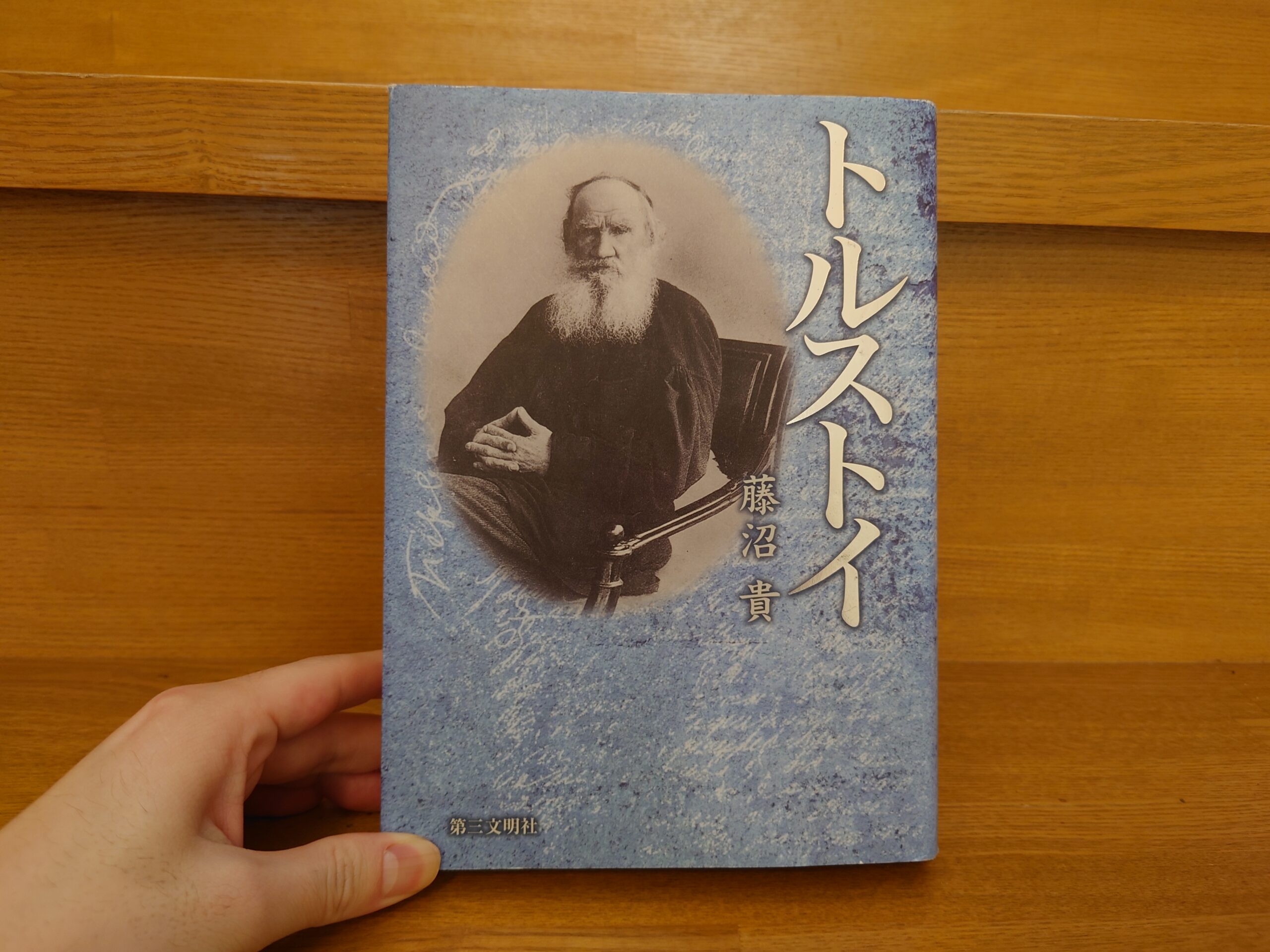Summary and Impressions of "Tolstoy" by Takashi Fujinuma - Recommended biography of Tolstoy, the great Russian writer!
Introduced here is "Tolstoy" by Takashi Fujinuma, published by Sanbanmeisha in 2009.
Let's take a quick look at the book.
His magnificent literary works such as War and Peace, his persistence in educating the people, and his confrontation with church authorities in search of true religion...the best of Tolstoy's research traces his life of 82 years.
Fujinuma/Taka
AmazonProducts Page.
Born in Anshan City, Liaoning Province, China in 1931. D. in Russian Literature from Waseda University. After working as a professor at Waseda University, he became a visiting professor at Soka University and a professor emeritus at Waseda University, specializing in 18th~19th century Russian literature (This data was published at the time this book was published.)
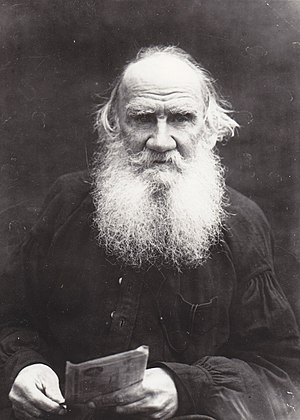
This work is the most recommended biography of the life of the Russian literary giant Tolstoy.
First of all, it is a massive volume of over 650 pages! In this biography, we will take a close look at Tolstoy's tumultuous life.
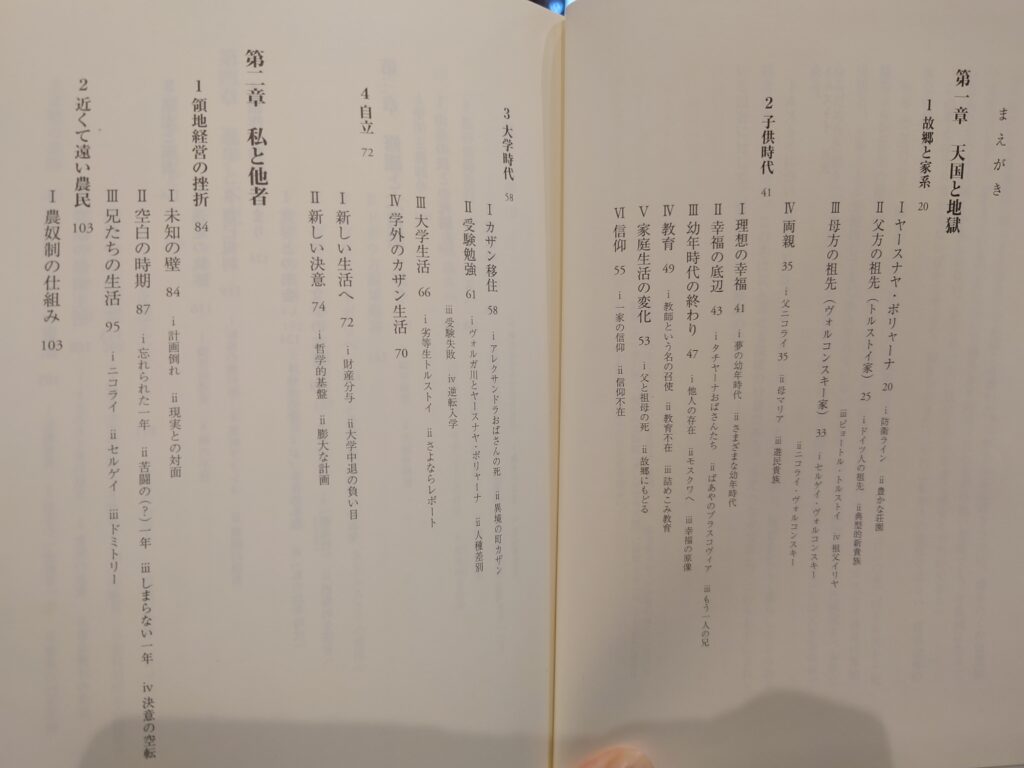
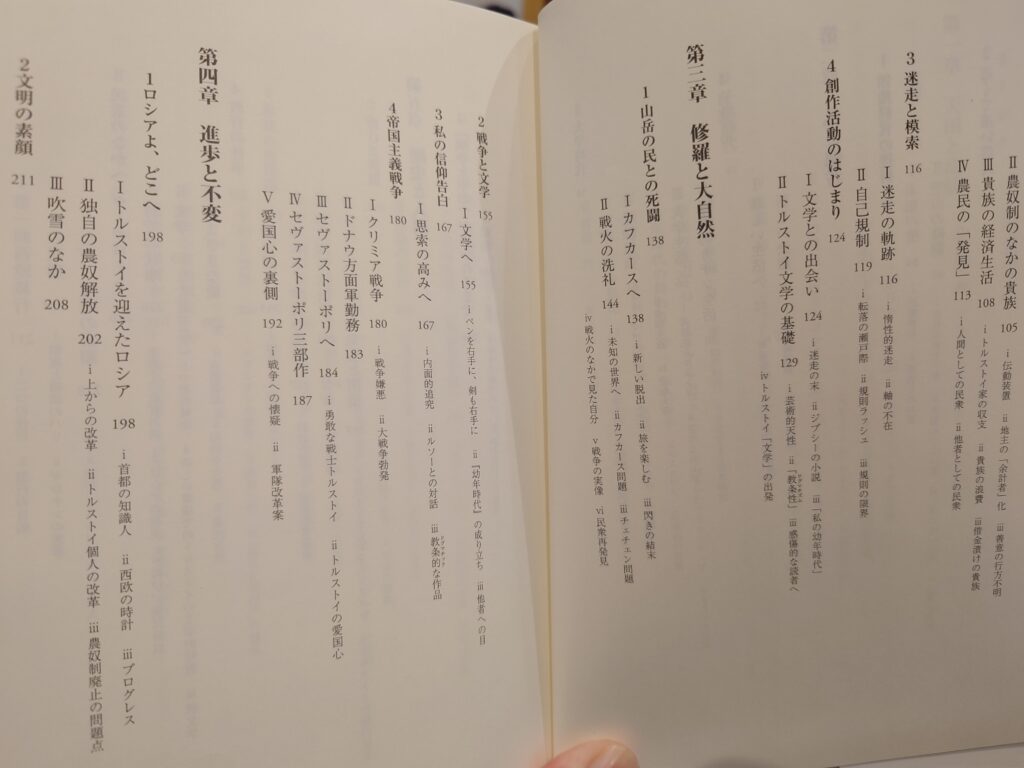
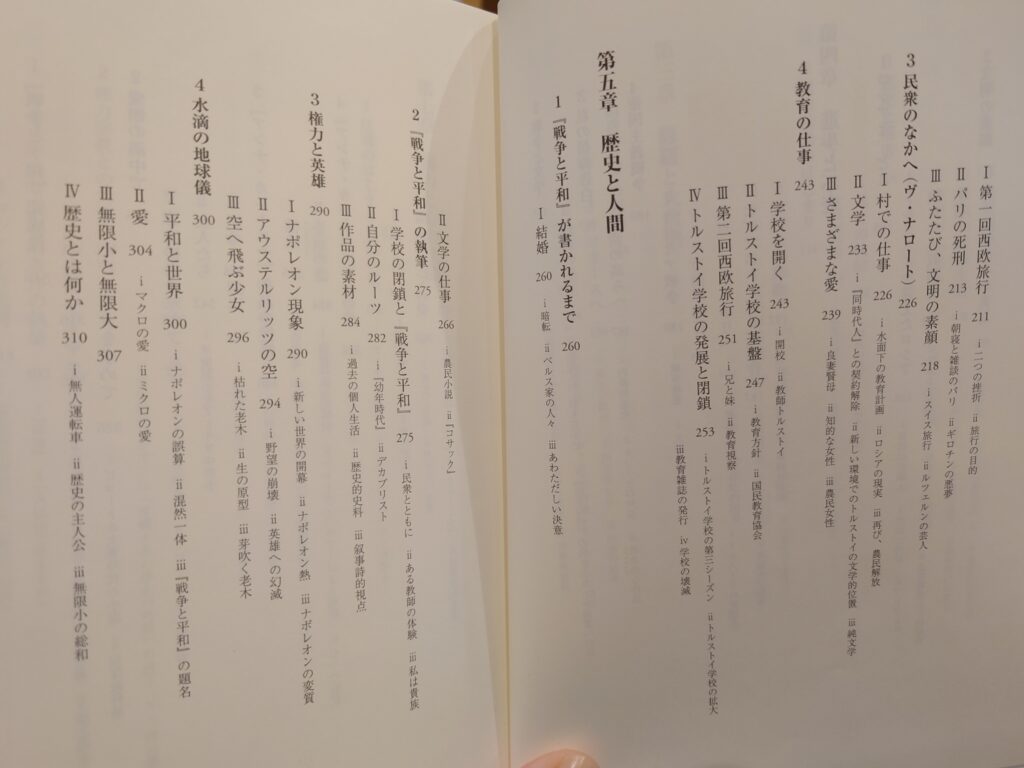
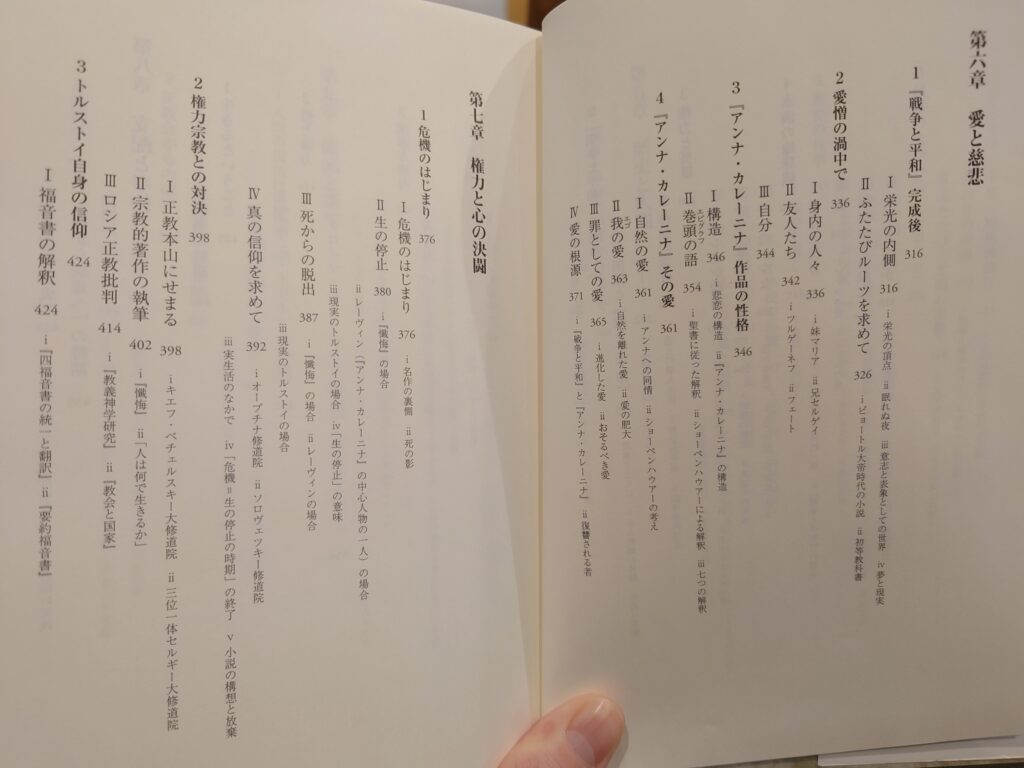
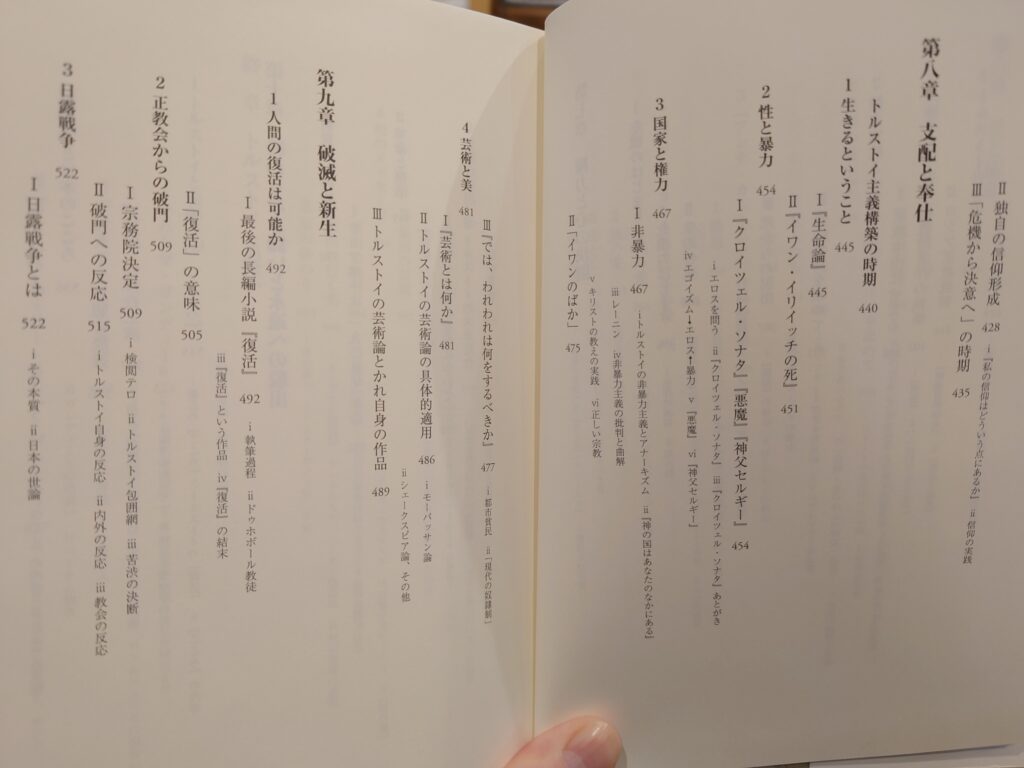
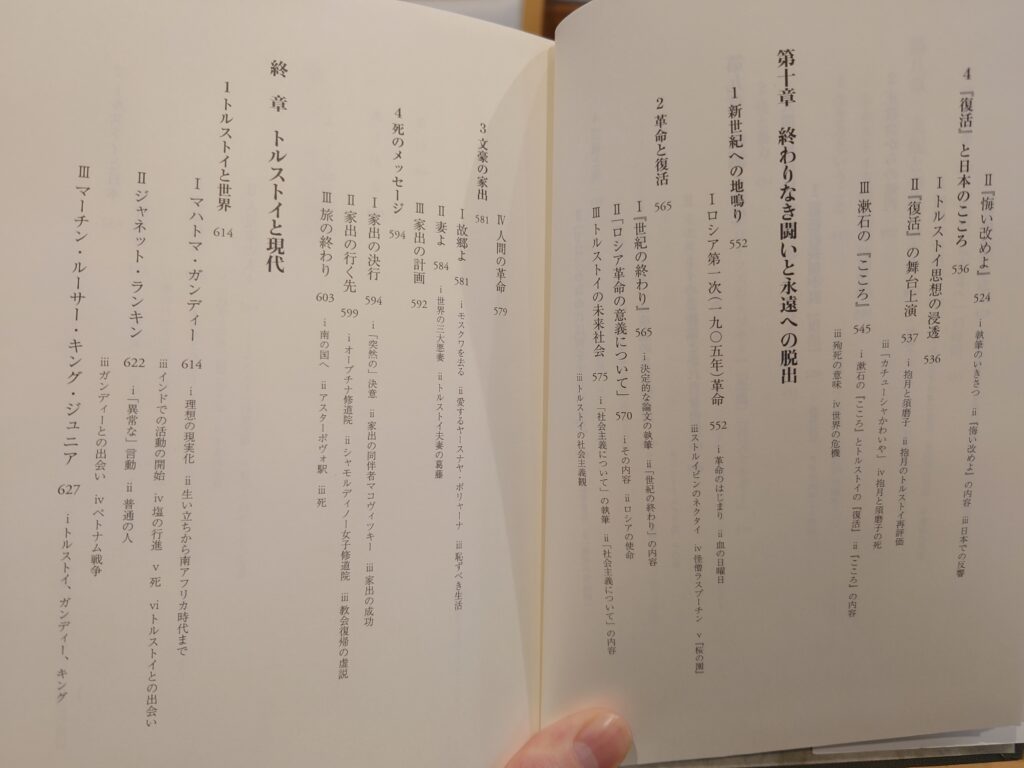
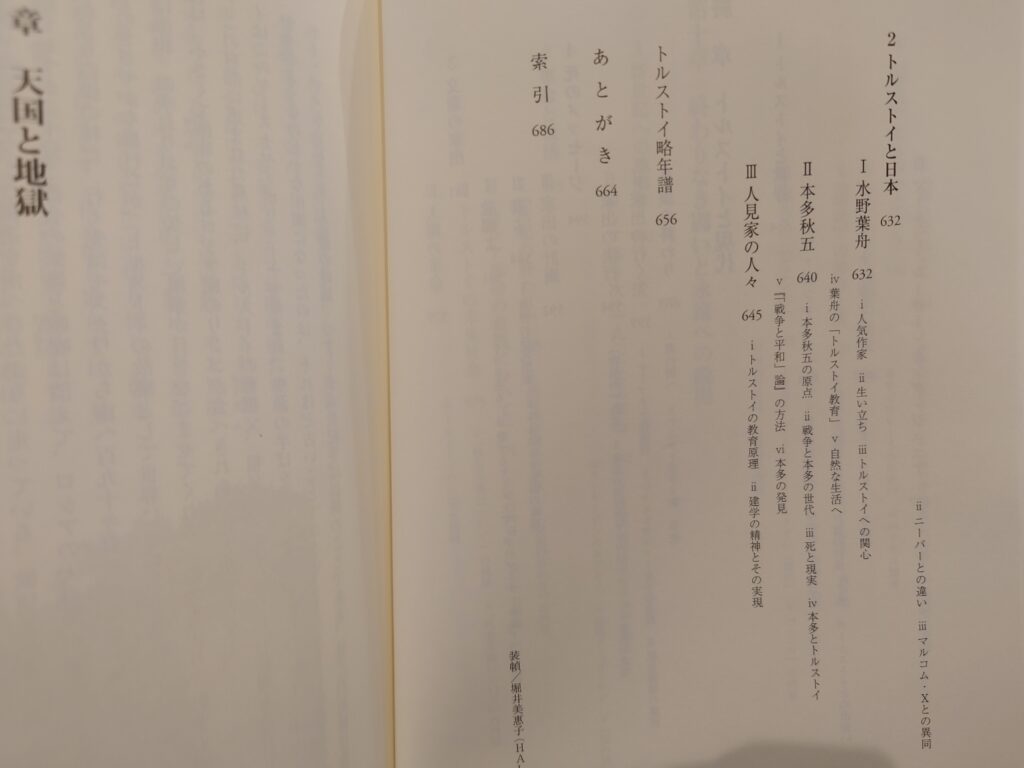
As you can see from this table of contents, the book provides a fairly detailed account of Tolstoy's life and works.
Moreover, the author's narrative is very easy to read, and you can read it as if you were reading a novel.
The text is also large, so there is no stress that hurts your eyes while reading.
This book will give you a glimpse of the overwhelming scale of Tolstoy's work. This is very interesting.
The following is a quote from the author's foreword. The story of the author's connection with Tolstoy told here was so interesting that I would like to share it with you.
I have published a book titled "The Life of Tolstoy" (Dai-san Bunmeisha, Regulus Bunko). I wrote and published this book in January 1993, exactly 16 years ago. At that time, I had already been supported by Tolstoy for about half a century.
Because I was at the end of the war generation and in a somewhat unique environment, when the war ended on August 15, 1945, I lost everything at once: my boarding school, my friends, and my goals for the future. I lost touch with my parents and family who lived abroad for a year.
Two months before the atomic bombing, I left Shobara in Hiba County, where I had been evacuated from the city center of Hiroshima, which was soon to become the hypocenter, and headed for Tokyo at the beginning of September in search of a place to live. It was impossible for him to pass through Hiroshima, so he traveled via Fukuyama and arrived in Tokyo after a day and a half of riding in uncovered freight cars, only to find that Tokyo was a burnt-out wilderness as far as the eye could see.
There were not many things that sustained my energy at the age of less than 14, but one of them was a small paperback book, Tolstoy's "War and Peace," that could fit in my palm. However, I never thought that a life of little practicality involving Russian literature and Tolstoy would become my life's work. What made me decide on this path was the advice of my teacher, the playwright Shoichi Oshikawa, who told me, "Do big Russian literature. Don't think about overbearing, boring things.
When I entered the Department of Russian Literature in the Faculty of Letters at Waseda University, I found that without exception, all of my former teachers were strong people who had overcome persecution, poverty, imprisonment, and internment with conviction and passion. My classmates also did not attend school, but instead engaged in political campaigns, wrote novels and acted in plays, whether they ate or not.rakeI felt comfortable that I was one of the decent ones.
These people told me, "You should go to the classroom and do some substitute work, that's all you can do. That's all you can do. I continued my studies despite the turbulent times, including the Korean War, the Red Purge, etc., and wrote both my graduation thesis and master's thesis on Tolstoy. I also intended to write my doctoral dissertation on Tolstoy, but I changed it to the 18th century Russian writer Karamzin, and later published it as "The Origin of Modern Russian Literature: A Study of Nikolai Karamzin" (Renga Shobo Shinsha, 1997). This was because he thought that in order to better understand Tolstoy, it was necessary to study the 18th century.
He continued to write articles on Tolstoy and translated "Childhood," "Anna Karenina," and "Resurrection," but never wrote a book. It is very difficult to write a book about Tolstoy. It is even more difficult to write about Tolstoy as a whole, rather than a specific issue. Surprisingly few top Tolstoy scholars have written books on Tolstoy as a whole. I wrote "The Life of Tolstoy" because I was given the perfect opportunity by my publisher and the help and encouragement of a competent and dedicated staff.
After a while of publishing this book, I began to feel that I had to revise and supplement it somewhat. However, I was lucky to have been able to publish this book, and I did not have the courage to ask for a new edition myself. However, the year before last, the same staff at the same publisher suggested that I leave "Tolstoy's Life" as it was and write a larger book. I was surprised to learn that a new book could be written, even though a revised edition would be a huge burden and risk for the publisher! I couldn't believe my ears, but of course I agreed to the proposal with a simple "yes.
Daisan Bunmeisha, Takashi Fujinuma, "Tolstoy," p. 1-3.
The author's war experience. And that it was Tolstoy who supported him at that time.
Also,
Do big Russian literature. Don't think about the big, heavy, boring things."
I was really numb when you mentioned that you had a mentor who told you so.
A classmate of mine from college.rakeIt was also amazing to see the full lineup of students. I felt that there was a completely different atmosphere at the university back then compared to today.
I also use this biography as a commentary when reading Tolstoy's works.
I really appreciate this biography, which tells not only about Tolstoy's life, but also the background and commentary of his works.
If you read Tolstoy, this biography is a must read. Highly recommended.
This is "Takashi Fujinuma's "Tolstoy" - Recommended Biography of Tolstoy, Russia's Great Man of Letters! The above is a recommended biography of Tolstoy, the great Russian writer!
Next Article.
Related Articles












